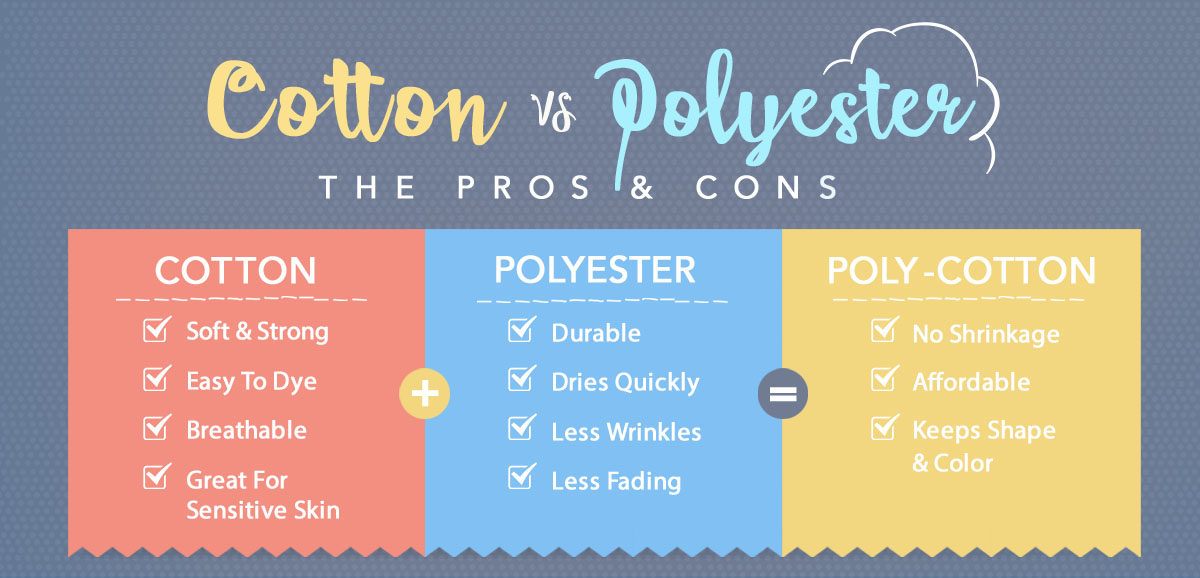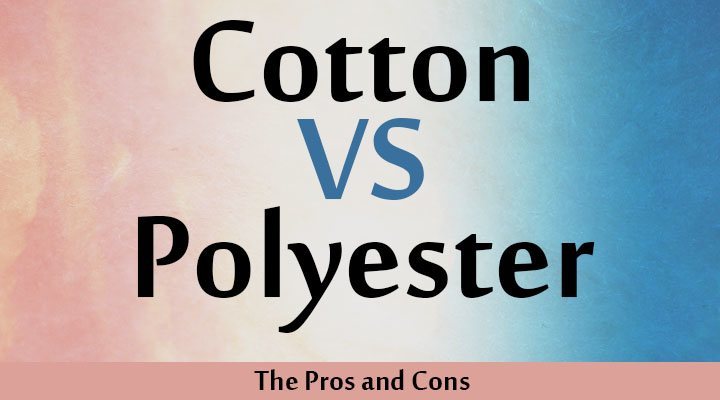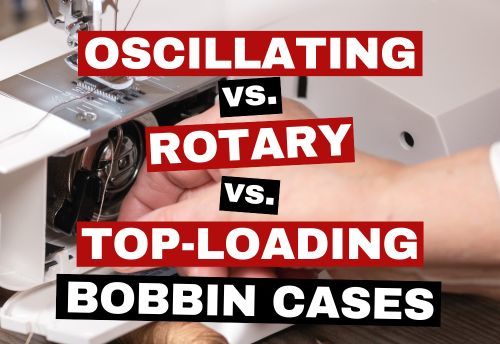
So, what's the big difference between cotton and polyester fabric? There are those who swear by cotton, but cheaper polyester is pretty tempting, isn't it? You may think that the lower cost of polyester means a lower quality product, but that isn't necessarily the case.
Polyester is great for some projects, while cotton is great for others. The real trick is to weigh the pros and cons to decide which is the right choice for you. Some people only want to work with 100% cotton because it's so easy to sew and is predictable. You know exactly what you're getting. Others prefer polyester because it's long-lasting and usually less expensive.
Let's go over each.
Cotton
Breathable: This natural fiber lets your skin breathe. It also absorbs moisture to keep your body temperature stable.
Soft, but strong: The fibers are less abrasive than polyester, so it feels super soft on your skin. That being said, some cotton fabric is designed to be strong and rough, like heavy duty cotton canvas. It all depends on the weave and the finish.
Great for sensitive skin: Because it is so much softer, those with sensitive skin tolerate 100% cotton better than polyester. With organic products becoming increasingly popular, you can find cotton fabric made with very little chemical processing.
Easy to dye: The fibers hold dye incredibly well. It also tends to dye evenly and produce a truer, deeper color. However, with excessive exposure to sunlight and time (decades), the dye will eventually fade. Also, cotton will shrink with the first washing and drying.
Biodegradable: Cotton will break down over time. Cotton isn't as durable as polyester in the long run. However, proper care can prolong the life of cotton. Try to avoid prolonged exposure to excessive sunlight and moisture.
Polyester
Long lasting: Polyester is a man-made fiber. It's very resilient and can withstand a good deal of wear and tear. It's basically plastic. In fact, plastic bottles can be recycled into polyester fabric. Polyester is not compostable, meaning it doesn't break down well in soil. Think about this in a landfill.
Less fading: Polyester holds dye well to prevent fading, but doesn't produce as "rich" of a color as cotton. High-quality polyester holds its shape well and doesn't shrink.
Dries quickly: Unlike cotton, polyester isn't absorbent. It's definitely not your go-to for towels. However, it dries super fast. So if you want to reduce that electricity bill, you might want to sew polyester clothing.
Less wrinkling: It's more resistant to wrinkles than cotton. This is great for anyone who dreads ironing.
Nonbreathing: Polyester doesn't let your skin breathe like cotton. For instance, if you wear a polyester shirt in the summer, you might find yourself pretty sweaty. That being said, there are many performance wear polyester products specifically engineered to wick sweat away from your body, but it really only works if the fabric is skin tight. If you buy a low-quality product, you'll notice a weird after smell.
Cotton/Poly Mix
This is the best of both worlds. Developers take the best qualities of both and weave them together to make one heck of a fabric. This stuff is great for apparel and home decor.
Quilters will still tell you to stick to 100% cotton and they have good reasons to say that. It's easy to use, it's predictable, and it shrinks at the same rate.
I say experiment with as much fabric as you can and see what you like best. It's all about the individual sewist and how you like to sew.
What about the environment?
This can make or break it for some people. Many people prefer cotton because it is a plant-based product and is "sustainable". Now, take a look at the two photos below.


Pretty similar, right? The first image is a cotton factory and the second image is a polyester factory. Either way, both fabrics are created in power-sucking factories. Both go through multiple chemical processes to make the final product and both products will be shipped around the globe. Even when you consider that polyester can be made from recycled plastic bottles, check out the huge process it goes through.
Now, consider all of the chemicals pumped into the atmosphere and all of the energy used to power the plants.
Before you start hating polyester, just know cotton has a dirty side, too. Cotton farming uses the most pesticides of any crop in the world. Every time it rains or the plant decomposes, chemicals leak into the ground water and surrounding water sources. Cotton takes a ton of land to grow and that land has to be watered a lot! Then, it all needs to be harvested using motorized farming equipment. Unless those tractors run on solar power, they aren't great for the environment.
Do you want to really be eco-friendly? Up-cycle and sew every scrap. Use your sewing skills to fix your clothing and home goods instead of buying new.
You could also start your own organic cotton fields. You could hand pick and process the cotton, then weave your own fabric. I guess that would be the most eco-friendly.
Personally, I'm sticking with fabric off the bolt.
Hey, I recycle. Don't judge.
References:
Frey, M., Li, L., & Browning, K. (n.d.).
Baugh, G. (n.d.).









